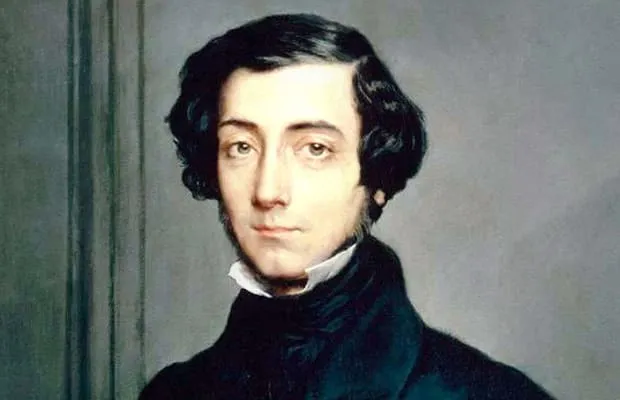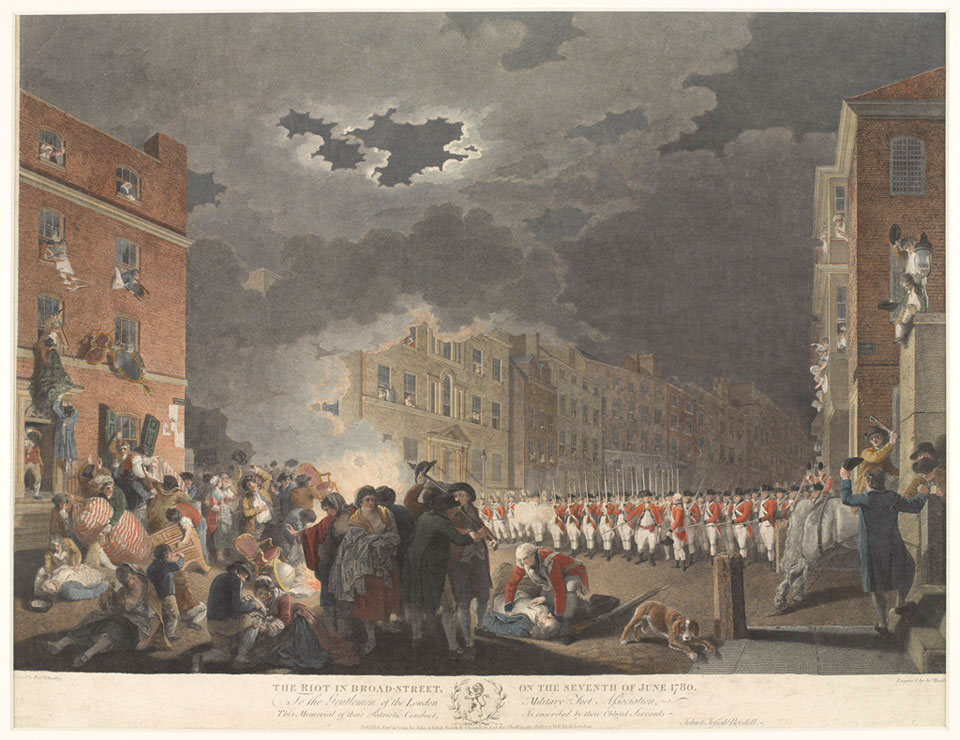The 2024 Election Through the Eyes of a Nineteenth-Century Historian
By Ben Fulton
November 15, 2024

In the 2024 presidential race run-up, Kamala Harris supporters took solace in the prediction of Allan Lichtman and his famous election forecasting system built around thirteen “keys” to the White House. A historian and professor emeritus at American University, Lichtman had correctly predicted all but one presidential race since 1984. Lichtman uses a system eschewing poll numbers for historical indicators with a proven track record of moving power throughout history.
In early September, Lichtman placed his bet. With three keys in favor of Donald Trump, eight keys in favor of Harris, and two keys relevant to foreign policy success and foreign policy failure up in the air, Lichtman called the race for Harris as the forty-seventh President of the United States. “The keys absolutely will work,” Lichtman recited calmly in a video story for The New York Times. “They are the constant northern star of political prediction.”
What makes the failure of Lichtman’s system interesting after the fact is not how he got it so wrong but why he believed he got it right. Two of his keys rested on the health of the U.S. economy. The first key in short-term indicators of recession, the second in long-term economic growth.
“Look, despite all the loose talk about a so-called ‘vibecession,’ the economy is not in recession,” Lichtman said in the NYT video. “Long-term growth during this presidential term has been at least as good as the last two terms. Growth during the Biden term is far ahead of growth during the previous two terms.”
More than one week after the election, the confidence with which Lichtman called the race for Harris is startling. Judge the statistics or follow the informed sages at The Economist. Both tell us that Lichtman was right about the present in which he spoke. Ostensibly, if not tangibly, the U.S. economy was, and is, just fine, if not great.
As it turns out, Lichtman was only wrong about the future, or least the ways American voters conceive of our collective future. (A pundit might also add that Lichtman, unlike lower- and middle-class members of the voting public, was also better positioned to absorb inflation and resist the fearmongering of immigrants, whether Haitians here legally or Hispanics here illegally.)
Historians apart from Lichtman tell us a different story, one that is more difficult to discern. In all the post-election analysis that has followed—“Identity politics no longer works,” “The working-class now belongs lock, stock and barrel to the Republican Party, the Democratic Party live only in the faculty lounge,” “Our nation’s true divide is not race, but who has a college degree”—perhaps the best set of tea leaves belong to Alexis de Tocqueville, the famous French historian who deciphered our national psyche in his book Democracy in America (1835) before moving on to analyze the forces of social upheaval in his own country with The Ancien Régime and the Revolution (1856). The voices of historians prepared to tell us truths about our nation’s founding revolution against the Crown help, too.
Tocqueville’s book on the French Revolution is less known in our country than his larger book chronicling American social character. In this era of “America First!” it makes sense that we prefer to read about ourselves. Ancien Régime and the Revolution, though, contains political arguments more important to our time because ours is a time of seismic political change. Tocqueville’s first lesson in tracing the roots of the French Revolution is that objective or statistical markers of economic prosperity do not weigh as heavily on the scales of change as does the weight of public opinion. Prosperity counts, but it cannot outrun citizens’ thirst for regime change.
“In none of the periods following the Revolution did public prosperity thrive more rapidly than during the preceding twenty years,” he writes. (The Ancien Régime and the Revolution, trans. Gerald Bevan, 2008, Penguin) “As the prosperity in France developed as I have just described, men’s minds appeared meanwhile more anxious and more unsettled. Public disquiet sharpened; the loathing of all ancient institutions was on the increase. The nation was obviously marching toward a revolution. Furthermore, the areas of France which were to be the leading homes of this revolution were precisely those where progress was most clearly observed.
“Consequently, it could be said that the French found their situation all the more intolerable the better it became. Such a view is surprising but history is packed with such sights.” (172-175)
Tocqueville also faulted a French government that enacted reforms that increased and centralized power in the French monarchy. This centralized power led to more polarization. In fact, as Tocqueville points out repeatedly, the most perilous moments for regimes occur during attempts at reform, recovery, and improvement. Historical analogs are always imperfect, but in hindsight, the Biden administration’s Inflation Reduction Act and other green-energy reforms would seem to fit the bill of Tocqueville’s analysis. By extension so, too, would Harris’s candidacy. Add the turmoil of the pandemic prior to Biden’s presidency into this mix and Tocqueville’s words seem almost prophetic. “Only a great genius can save a ruler who is setting out to relieve his subjects’ suffering after a long period of oppression.” (175)
The “sights” that Tocqueville insists history is “packed with”—of revolution and seismic change amid relative prosperity—extend to our own shores as well.
In his massive 2014 book The English and Their History, Robert Tombs reminds us that prior to the U.S. revolution against the Crown, “the Americans were among the most lightly taxed people in the world, paying on average 1 shilling per head annually compared with 26 shillings in England.” (346) It was when the British Crown, after funding the expensive military campaigns of the French and Indian War, prohibited colonial expansion west of the Appalachians and recognized land ownership of indigenous tribes that affairs began their downward spiral. By all accounts, and relative to most British colonies and certainly most of the world, our forefathers had it quite good. None of that was sufficient to prevent the colonists from wanting much more. None of it prevents the march of history and the birth of the United States of America through armed revolt.
Lichtman had an incredible run predicting U.S. presidential elections from 1984 through 2020. His “thirteen keys” will likely remain reliable in 2028, even if we include his dismal misfire this year. It is no great shame that they cracked and gave way to the nuances of history, as forces gathered into a critical mass of something entirely new or, in the case of a historian as formidable as Tocqueville, insights we must learn from all over again, even if we see them anew for the first.




